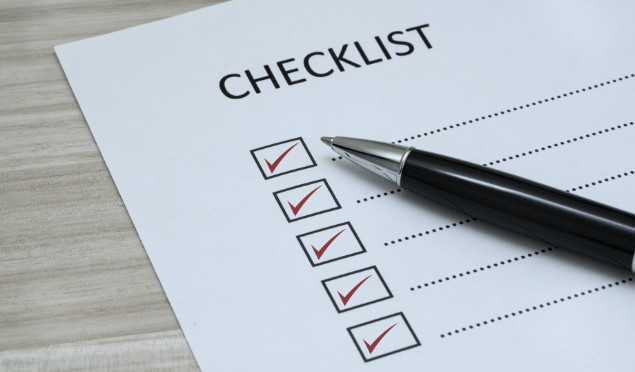A practical checklist for dealing with death

Last updated on 5th January, 2024 at 02:46 pm
Dealing with death can be overwhelming and confusing. To help ease this difficult time, here’s a practical checklist to ensure the tough task of the admin is made a little easier when a loved one passes away.
Get the death certificate as soon as possible
A death certificate is a legal document that plays an important role in winding down the estate of someone who has passed away. “The death certificate is issued by the Department of Home Affairs (DHA),” says David Thomson, legal adviser at Sanlam Trust. “The family of the deceased or the funeral provider must attend to it.”
The medical practitioner or professional nurse who attended upon the deceased when they passed away, or who examined them to establish the cause of death, needs to complete the Notice of Death form (DHA-1663A). This needs to be submitted to the DHA and, once the death is registered, a death report (Form BI-1680) will be issued by either an undertaker, member of the South African Police Service or traditional leader. The Department of Home Affairs will issue a death certificate on receipt of the notification of death (Form BI-1663) and the Death Report (Form BI-1680).
Find out if the deceased is an organ donor
If you were close to the person who has passed away, they may have shared with you that they are an organ donor. If not, check for an organ donor card in their purse or wallet, or organ donor stickers in their ID book or on their driver’s licence. These are normally sent to donors once they are registered with the Organ Donor Foundation. “It is essential that organs are removed as soon as possible after brain death has been declared in order to ensure successful transplantation,” says the Organ Donor Foundation. “Speak to the medical professional attending to your loved one – a physician, ICU & trauma unit nurse, or neurologist. Inform them of your loved one’s wishes. Ask for contact details of the closest transplant centre or call the Organ Donor Foundation on 0800 22 66 11 for assistance.”
Notify those whom the deceased knew
“Notifying others when a loved one has died will never be easy, but there are a few things that you can consider when breaking the news,” says Monique Schneigansz, a registered counsellor. Here are her three key tips to remember when letting family, friends and colleagues know of the deceased’s passing:
1. In person is best
“It will be helpful to notify others of someone’s passing in person, if possible and safe,” says Schneigansz. “However, there are cases where it will not always be possible.”
2. Be honest
“It is challenging to be direct and forthcoming under such circumstances because it’s a very sensitive matter,” says Schneigansz. You don’t need to share all the detail at once, but it is important to prioritise honesty, openness and transparency about the death.
3. Keep it succinct, for now
“Avoid sharing any unnecessary information related to the death at the time, as this may cause confusion,” says Schneigansz. “Try to remain focused on the topic at hand.” That said, make sure you do allow enough time when disclosing the news – be sensitive to the processing time it will take for friends, family and colleagues to let the news sink in. “The process should not be rushed, allowing those close to the deceased to express their emotions and thoughts without any interruptions,” says Schneigansz.
Death can be a deeply confusing concept for children to grasp. Use this guide for taking care of bereaved children.
How should the body be handled?
Some people express their wishes for the disposal of their body in their will. However, sometimes the will is only read after a burial or cremation has taken place. This is why it’s important to ask the executor of the deceased’s estate what their preference was before the body is disposed of. Then contact the funeral home, who will set up an appointment to arrange the burial or cremation, and the funeral or memorial service. Remember that a burial order cannot be issued without a death certificate.
Learn more about how a good funeral home can help with organising a fitting send-off for your loved one here.
Contact insurers
Life insurance and funeral cover providers require the death certificate and details of the main policyholder and beneficiaries when you put through a claim.
Reality Access for Sanlam Group Risk members have a Burial Repatriation and Funeral Support benefit – click here to learn more.
Consolidate the deceased’s finances
“The bank will generally not accept any communication from any other person other than the duly appointed executor,” says Thomson. If you are the executor of the estate, the minimum the bank would require as proof of this is the Master of the High Court-issued Letters of Executorship. “Most banks require the executor to attend personally at the bank or to send a duly authorised agent who must have proof of his or her identity and authorisation,” adds Thomson. Once the deceased’s accounts are closed, those funds are paid to a proper estate bank account in the name of the estate. “This does not have to be with the same bank,” says Thomson.
What about investments and savings?
“The deceased’s investments (for example, unit trusts and listed shares) do not have to be sold, unless the will states that they must be sold by the executor,” says Thomson. If this is the case, the executor needs to strictly follow the wishes of the deceased’s will. “All assets that belonged to the deceased cannot be transferred to any heir, by law, until the estate is finalised, and the Master of the High Court authorises distribution of the estate in writing,” continues Thomson.
Read this for answers to the most common questions about wills.
If you are the executor of the deceased’s estate, find out which investments they could have had by speaking to their financial planner.
File the deceased’s tax return
The executor of the estate needs to have access to the deceased’s income tax profile on eFiling. The profile needs to be activated for deceased estate purposes, say Alicia Human and Elani van der Westhuizen of TaxTim. “This will create a new additional income tax number for the deceased, which is for post-death tax returns,” they explain.
Once the profile is activated and the additional income tax number is generated, the executor would need to do the following:
Complete the income tax return for:
• All outstanding tax returns for previous tax years that were not submitted as yet under the pre-death income tax number.
• The tax year in which the deceased passed away from 1 March to date of death under the pre-death income tax number.
• The tax year in which the deceased passed away from date of death until date of the finalisation of the estate. This will be filed on the post-death tax number.
Why the different income tax numbers?
“The income tax returns before and after death differ from each other, as some sections are not applicable after death, and additional information is required on the return after date of death,” say Human and van der Westhuizen. “All these returns must be submitted to SARS to declare income that was earned, and allowable deductions before and after death, which include interest on the estate account and rental income earned on property before it was sold,” they explain.
Various documents are needed to complete these tax returns, including investment tax statements, income and expense schedules from rented properties or other trading the deceased may have undertaken, the L & D (liquidation and distribution) account of the estate and the capital gains tax certificates. “Overseas assets will require specialist assistance, and shares in private companies must be professionally valued and submitted to the SARS,” says Thomson.
“If the deceased was married in community of property, the income must be split between the spouse and the deceased’s tax returns,” conclude Human and van der Westhuizen.
Close email and social accounts
What happens to the deceased’s email accounts?
Not all email accounts have the same protocols after death. “Gmail allows a friend or relative to apply for the account of a deceased user and then either: submit a request for funds from a deceased user’s account (such as funds remaining in Google AdSense or Google Wallet); obtain data from a deceased user’s account; or close the account,” says Emma Sadleir, an expert on social media law and founder of the Digital Law Company. Go through the different email providers’ policies to find out the correct route for closing the email account.
Facebook
The deceased would’ve had the option to either appoint a legacy contact to look after their memorialised account, or to have the account permanently deleted from Facebook upon their passing. If they didn’t choose the latter, Facebook will memorialise the account as soon as it’s made aware of the death. “A memorialised account allows friends and family to post memories of the deceased on the timeline but won’t appear in public spaces such as friend suggestions or birthday reminders,” says Sadleir. “Memorialised accounts that don’t have a legacy contact can’t be changed,” she adds.
Instagram
Similar to Facebook, Instagram also memorialises accounts once it’s made aware of a death; however, “these accounts can’t be changed and no one can log into the profile,” says Sadleir. “Posts of the deceased user will stay on the site and are visible to the people they were shared with, but memorialised accounts do not appear in public spaces, like searches.”
Twitter
Twitter will work with a person authorised to act on behalf of the deceased estate, or with one of their verified immediate family members, to have the deceased’s account deactivated. “You can also request that the account is permanently removed,” says Sadleir. If you’re authorised, check whether the deceased opted for this.
Want to learn more?
We send out regular emails packed with useful advice, ideas and tips on everything from saving and investing to budgeting and tax. If you're a Sanlam Reality member and not receiving these emails, update your contact details now.
Update Now







